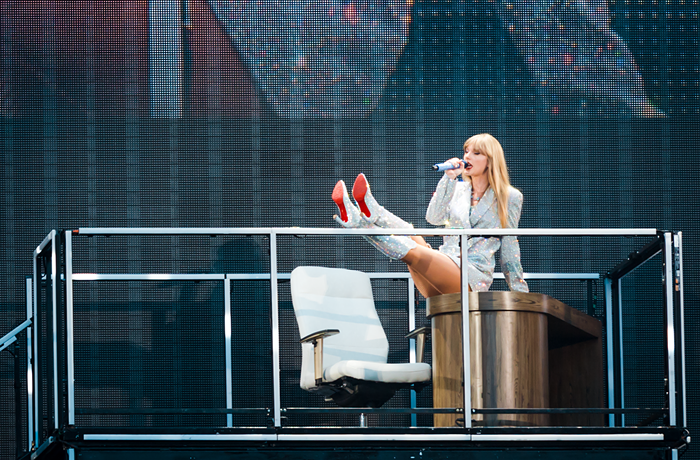Given the fact that African Americans, women, and lesbians all struggle to be seen as non-stereotypical individuals in the film industry, Pariah—a subtle movie about an African American lesbian teenager—is a freaking miracle. Its best feature is that the main character doesn't seem to know the name of the film she's in. She knows she's treated like a pariah sometimes (and sometimes, much worse), but she doesn't disappear into victimhood. She's smart and so are the blows that hit her in first-time writer/director Dee Rees's movie. You don't see her, or them, coming.
The movie opens with an Audre Lorde quote and a spread-eagled woman upside down on a pole. It's a lesbian strip club, raunchy, and the camera focuses on Alike Freeman—pronounce it ah-LEE-kay—the virgin in the corner, wearing the baseball cap and short-sleeved polo shirt with her shoulders slumped to hide her breasts. On the train home, she'll have to change into hoop earrings and a tight-fitting T-shirt that says "Angel" across her chest so that her mother won't catch on. (You could do a study of the development of Alike's relationship to her gender expression in this movie by following those hoops alone.) But it's too late. Her mother knows. Her father is a police officer. Everybody, except Alike's obnoxious femmey younger sister, is in their own special world of denial—which means their family-dinner scenes join the great horror-show ranks of all those upwardly-mobile-but-we've-got-a-problem American families of cinema and literature. Homophobia is no mystery in this movie: Its engine is respectability. And the homophobes are not always who you think they will be.
Adepero Oduye plays Alike, and the woman is a wizard. Do you know how many land mines she could have landed on in any given scene? Instead, Oduye's Alike is deep within herself, totally uncareful in her mannerisms, relaxed. She's got the best-actress Oscar on lock, and if she doesn't win it, well... that'll be just like the Oscars. It's also a painful pleasure to see Kim Wayans's tortured-mother character. As hard as it must have been, her face doesn't give an inch. It is awful. When Alike comes home in the middle of the night, way past her curfew, rather than being worried about her daughter's safety, she tells her how much she likes the "Angel" shirt. "Well, at least you were cute," she says, revealing so much about the way womanhood is inherited in American life. Meanwhile, in your ears, a great, entirely female soundtrack (with Afro-punk artists like Tamar-kali and emoniFela, and indie-soul singer Sparlha Swa) slyly deconstructs conventional femininity throughout the movie.
There are several pivot points in the story, when you think you're watching one kind of movie (a tragedy or a troubled-kid film), but it turns a corner right in front of you to reveal more of its landscape. The first pivot comes in a school classroom. Another, on a roof. A third, within a poem Alike writes. These complicating moves are the opposite of what you get from movies like Precious or Tyler Perry's For Colored Girls.
Is this a realistic portrayal of black lesbian teenage life and culture in an upwardly mobile middle-class community in New York City? I can't answer that. But I can say that it's a story, not a demographic mashup—a story that somehow, against pretty high odds to the contrary, was able to maintain the dignity of its specificity. Rather than playing at art-house theaters, it should play at every multiplex across the country. ![]()



















